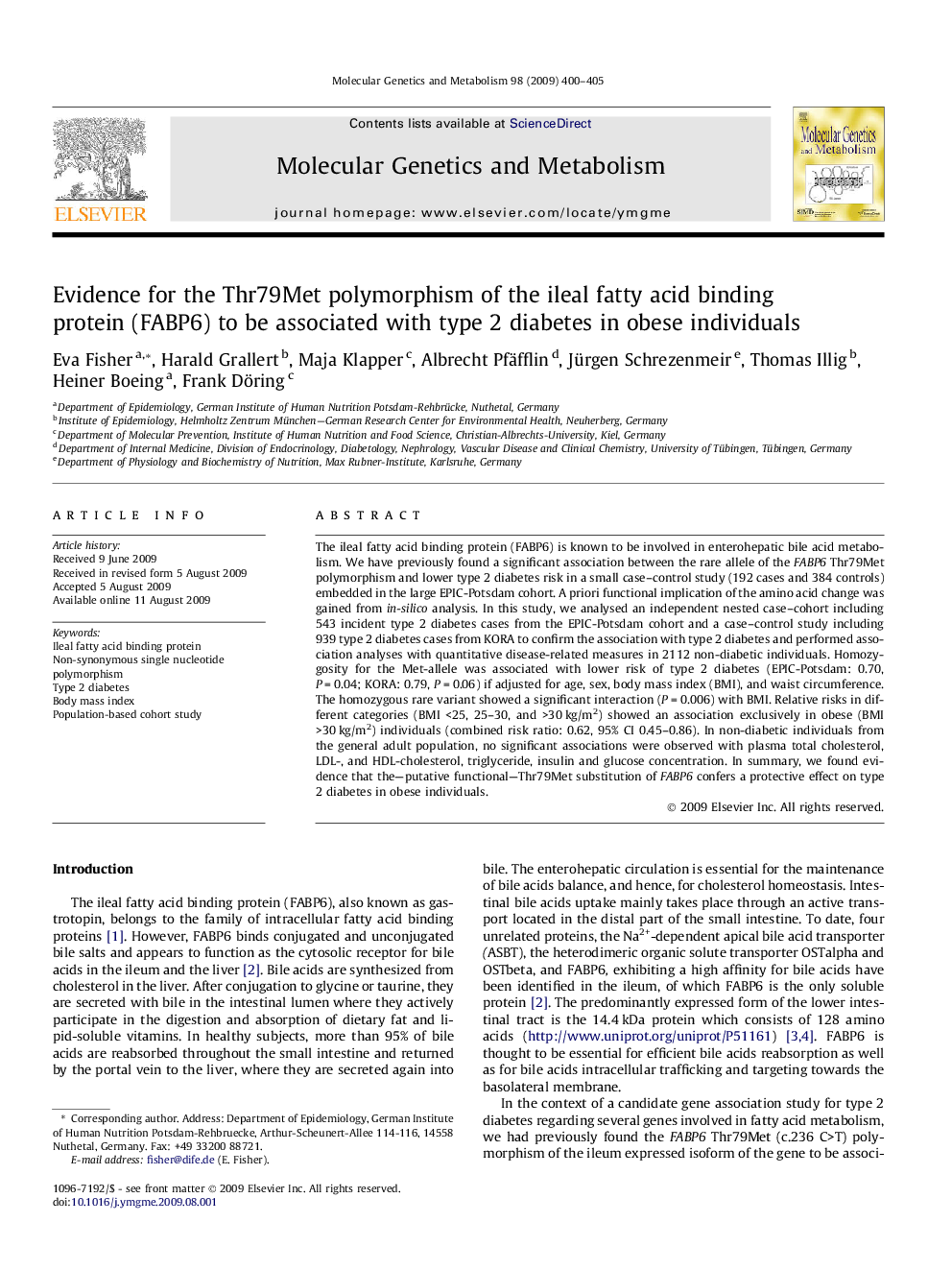| Article ID | Journal | Published Year | Pages | File Type |
|---|---|---|---|---|
| 1998850 | Molecular Genetics and Metabolism | 2009 | 6 Pages |
The ileal fatty acid binding protein (FABP6) is known to be involved in enterohepatic bile acid metabolism. We have previously found a significant association between the rare allele of the FABP6 Thr79Met polymorphism and lower type 2 diabetes risk in a small case–control study (192 cases and 384 controls) embedded in the large EPIC-Potsdam cohort. A priori functional implication of the amino acid change was gained from in-silico analysis. In this study, we analysed an independent nested case–cohort including 543 incident type 2 diabetes cases from the EPIC-Potsdam cohort and a case–control study including 939 type 2 diabetes cases from KORA to confirm the association with type 2 diabetes and performed association analyses with quantitative disease-related measures in 2112 non-diabetic individuals. Homozygosity for the Met-allele was associated with lower risk of type 2 diabetes (EPIC-Potsdam: 0.70, P = 0.04; KORA: 0.79, P = 0.06) if adjusted for age, sex, body mass index (BMI), and waist circumference. The homozygous rare variant showed a significant interaction (P = 0.006) with BMI. Relative risks in different categories (BMI <25, 25–30, and >30 kg/m2) showed an association exclusively in obese (BMI >30 kg/m2) individuals (combined risk ratio: 0.62, 95% CI 0.45–0.86). In non-diabetic individuals from the general adult population, no significant associations were observed with plasma total cholesterol, LDL-, and HDL-cholesterol, triglyceride, insulin and glucose concentration. In summary, we found evidence that the—putative functional—Thr79Met substitution of FABP6 confers a protective effect on type 2 diabetes in obese individuals.
